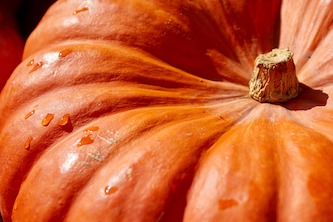When it is cold in a room, it can make your body work very hard. Scientists did a test in a room that was only a little cold. They found out that when it gets cold, your body tries to keep warm by making the blood go away from your hands. If it gets even colder, your heart beats faster and it is harder for your brain to think.
Being in the cold can also make you sick. You might get a bad heart or your blood might not move right. When it’s cold, people stay inside more, and that can make more people get sick. Your nose can’t fight the germs as well when it’s cold. To stay warm, you should wear a coat, make your house warm, and move around to make your body warm.
Original news source: Cold weather: What does an unheated room do to your body? (BBC)
Listen
Slow
Normal
Fast
Group or Classroom Activities
Warm-up Activities:
– Charades
Instructions: Divide the class into small groups. Each group will take turns selecting a word or phrase related to the article (e.g. cold, coat, germs) and acting it out without speaking. The other group members must guess the word or phrase within a certain time limit.
– Vocabulary Pictionary
Instructions: Divide the class into pairs. Each pair will take turns selecting a word from the article and drawing a picture to represent it. The other partner must guess the word based on the drawing. Encourage the use of simple, basic vocabulary words.
– Speed Summarizing
Instructions: Provide each student with a copy of the article. Set a timer for 2 minutes and challenge the students to read the article and write a brief summary of its main points. After the time is up, have the students share their summaries with a partner and discuss any differences or similarities.
– Think-Pair-Share
Instructions: Have the students think about and write down their response to the following question: “Why is it important to stay warm in cold weather?” Then, pair the students up and have them share their responses with each other. Finally, ask a few pairs to share their answers with the whole class.
– Future Predictions
Instructions: Divide the class into small groups. Give each group a future scenario related to the article (e.g. “In 50 years, how do you think people will stay warm in cold weather?”) and have them discuss and make predictions about what might happen. Each group should present their predictions to the class.
Comprehension Questions:
1. What happens to your body when it’s cold in a room?
2. What does your body do to try to stay warm when it’s cold?
3. What happens if it gets even colder?
4. Can being in the cold make you sick? Why or why not?
5. What can happen to your heart if you’re in the cold for too long?
6. Why do people stay inside more when it’s cold?
7. How can you stay warm when it’s cold outside?
Go to answers ⇩
Listen and Fill in the Gaps:
When it is cold in a (1)______, it can make your body (2)______ very hard. Scientists did a test in a room that was only a little cold. They found out that when it gets cold, your body tries to keep (3)______ by making the blood go away from your hands. If it gets even colder, your heart beats faster and it is (4)______ for your brain to think.
Being in the cold can also (5)______ you sick. You might get a bad heart or your blood might not move right. When it’s cold, (6)______ stay inside more, and that can make more people get (7)______. Your nose can’t fight the germs as well when it’s (8)______. To stay warm, you should wear a coat, make your house warm, and move around to make your body warm.
Go to answers ⇩
Discussion Questions:
Students can ask a partner these questions, or discuss them as a group.
1. What happens to your body when it gets cold?
2. How do you feel when you are in a cold room?
3. Do you like being in the cold? Why or why not?
4. What can happen to your heart when it’s cold?
5. How does your body try to stay warm in the cold?
6. How can the cold make you sick?
7. Do you stay inside more when it’s cold? Why or why not?
8. What happens to your nose when it’s cold?
9. What can you do to stay warm in the cold?
10. Do you wear a coat when it’s cold? Why or why not?
11. How can you make your house warm in the cold?
12. Why is it important to move around and make your body warm when it’s cold?
Individual Activities
Vocabulary Meanings:
Match each word to its meaning.
Words:
1. cold
2. room
3. body
4. blood
5. hands
6. heart
7. brain
8. sick
Meanings:
(a) A place inside a house
(b) The red liquid inside your body
(c) The part of your body that helps you think
(d) Not feeling well
(e) The part of your body that makes your blood move
(f) Not hot
(g) The part of your body at the end of your arms
(h) The part of you that can move
Go to answers ⇩
Multiple Choice Questions:
1. What happens to your body when it gets cold?
(a) Your body gets bigger.
(b) Your body turns blue.
(c) Your body tries to keep warm by making the blood go away from your hands.
(d) Your body gets sleepy.
2. Why is it harder for your brain to think when it’s cold?
(a) Your brain gets bigger.
(b) Your heart beats faster.
(c) Your brain gets smaller.
(d) Your brain gets hungry.
3. How can being in the cold make you sick?
(a) You might get taller.
(b) You might get stronger.
(c) You might get smarter.
(d) You might get a bad heart or your blood might not move right.
4. What happens to your nose when it’s cold?
(a) Your nose gets bigger.
(b) Your nose turns green.
(c) Your nose gets sleepy.
(d) Your nose can’t fight the germs as well.
5. What should you wear to stay warm?
(a) A hat
(b) A shoe
(c) A coat
(d) A book
6. What should you do to make your house warm?
(a) Open the windows
(b) Make a fire
(c) Turn on the air conditioner
(d) Turn on the TV
7. What should you do to make your body warm?
(a) Move around
(b) Sit still
(c) Sleep
(d) Eat a lot of ice cream
8. What did scientists find out about your body in a cold room?
(a) Your heart beats faster and it is harder for your brain to think.
(b) Your heart beats slower and it is easier for your brain to think.
(c) Your heart stops beating and your brain stops working.
(d) Your heart gets bigger and your brain gets smarter.
Go to answers ⇩
True or False Questions:
1. Your nose can’t fight germs as well when it’s cold.
2. Being in the cold can’t make you sick.
3. When it’s cold, people stay outside more and that can make fewer people get sick.
4. When it gets cold, your body makes the blood go away from your hands.
5. Scientists did a test in a room that was a little cold.
6. When it’s cold, your body doesn’t have to work hard to stay warm.
7. If it gets even colder, your heart beats slower and it’s easier for your brain to think.
8. To stay warm, you should wear a coat, make your house warm, and move around to make your body warm.
Go to answers ⇩
Write a Summary:
Write a summary of this news article in two sentences.
Check your writing now with the best free AI for English writing!
Writing Questions:
Answer the following questions. Write as much as you can for each answer.
Check your answers with our free English writing assistant!
1. What happens to your body when it gets cold?
2. Why is it harder for your brain to think when it’s cold?
3. How can being in the cold make you sick?
4. What can you do to stay warm when it’s cold?
5. Why is it important to move around when it’s cold?
Answers
Comprehension Question Answers:
1. What happens to your body when it’s cold in a room?
Your body has to work hard to stay warm.
2. What does your body do to try to stay warm when it’s cold?
Your body makes the blood go away from your hands.
3. What happens if it gets even colder?
Your heart beats faster and it’s harder for your brain to think.
4. Can being in the cold make you sick? Why or why not?
Yes, being in the cold can make you sick because it can give you a bad heart and your blood won’t move right. Also, when it’s cold, more people stay inside and that can make more people get sick.
5. What can happen to your heart if you’re in the cold for too long?
Your heart can get sick and not work properly.
6. Why do people stay inside more when it’s cold?
People stay inside more when it’s cold because they want to stay warm.
7. How can you stay warm when it’s cold outside?
You can wear a coat, make your house warm, and move around to make your body warm.
Go back to questions ⇧
Listen and Fill in the Gaps Answers:
(1) room
(2) work
(3) warm
(4) harder
(5) make
(6) people
(7) sick
(8) cold
Go back to questions ⇧
Vocabulary Meanings Answers:
1. cold
Answer: (f) Not hot
2. room
Answer: (a) A place inside a house
3. body
Answer: (h) The part of you that can move
4. blood
Answer: (b) The red liquid inside your body
5. hands
Answer: (g) The part of your body at the end of your arms
6. heart
Answer: (e) The part of your body that makes your blood move
7. brain
Answer: (c) The part of your body that helps you think
8. sick
Answer: (d) Not feeling well
Go back to questions ⇧
Multiple Choice Answers:
1. What happens to your body when it gets cold?
Answer: (c) Your body tries to keep warm by making the blood go away from your hands.
2. Why is it harder for your brain to think when it’s cold?
Answer: (b) Your heart beats faster.
3. How can being in the cold make you sick?
Answer: (d) You might get a bad heart or your blood might not move right.
4. What happens to your nose when it’s cold?
Answer: (d) Your nose can’t fight the germs as well.
5. What should you wear to stay warm?
Answer: (c) A coat
6. What should you do to make your house warm?
Answer: (b) Make a fire
7. What should you do to make your body warm?
Answer: (a) Move around
8. What did scientists find out about your body in a cold room?
Answer: (a) Your heart beats faster and it is harder for your brain to think.
Go back to questions ⇧
True or False Answers:
1. Your nose can’t fight germs as well when it’s cold. (Answer: True)
2. Being in the cold can’t make you sick. (Answer: False)
3. When it’s cold, people stay outside more and that can make fewer people get sick. (Answer: False)
4. When it gets cold, your body makes the blood go away from your hands. (Answer: True)
5. Scientists did a test in a room that was a little cold. (Answer: True)
6. When it’s cold, your body doesn’t have to work hard to stay warm. (Answer: False)
7. If it gets even colder, your heart beats slower and it’s easier for your brain to think. (Answer: False)
8. To stay warm, you should wear a coat, make your house warm, and move around to make your body warm. (Answer: True)
Go back to questions ⇧















